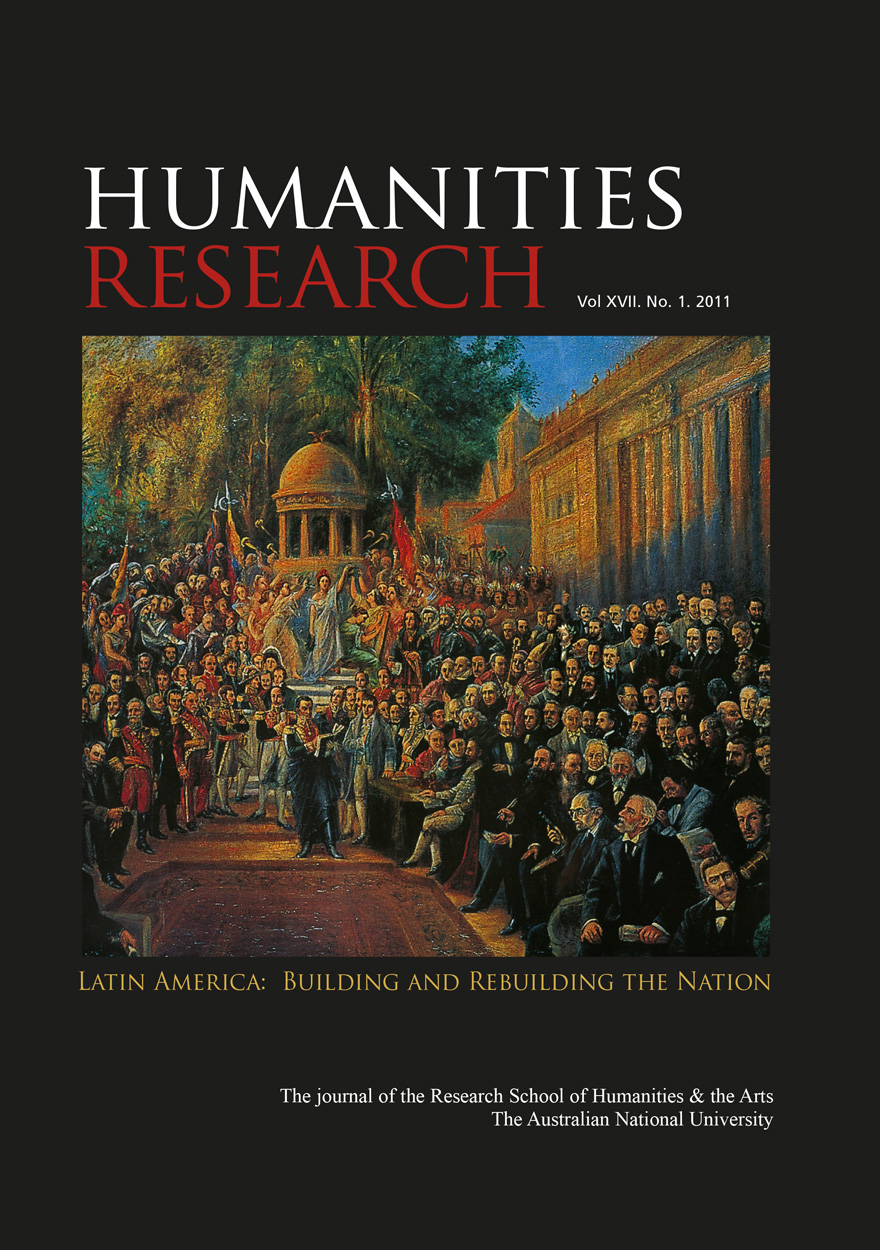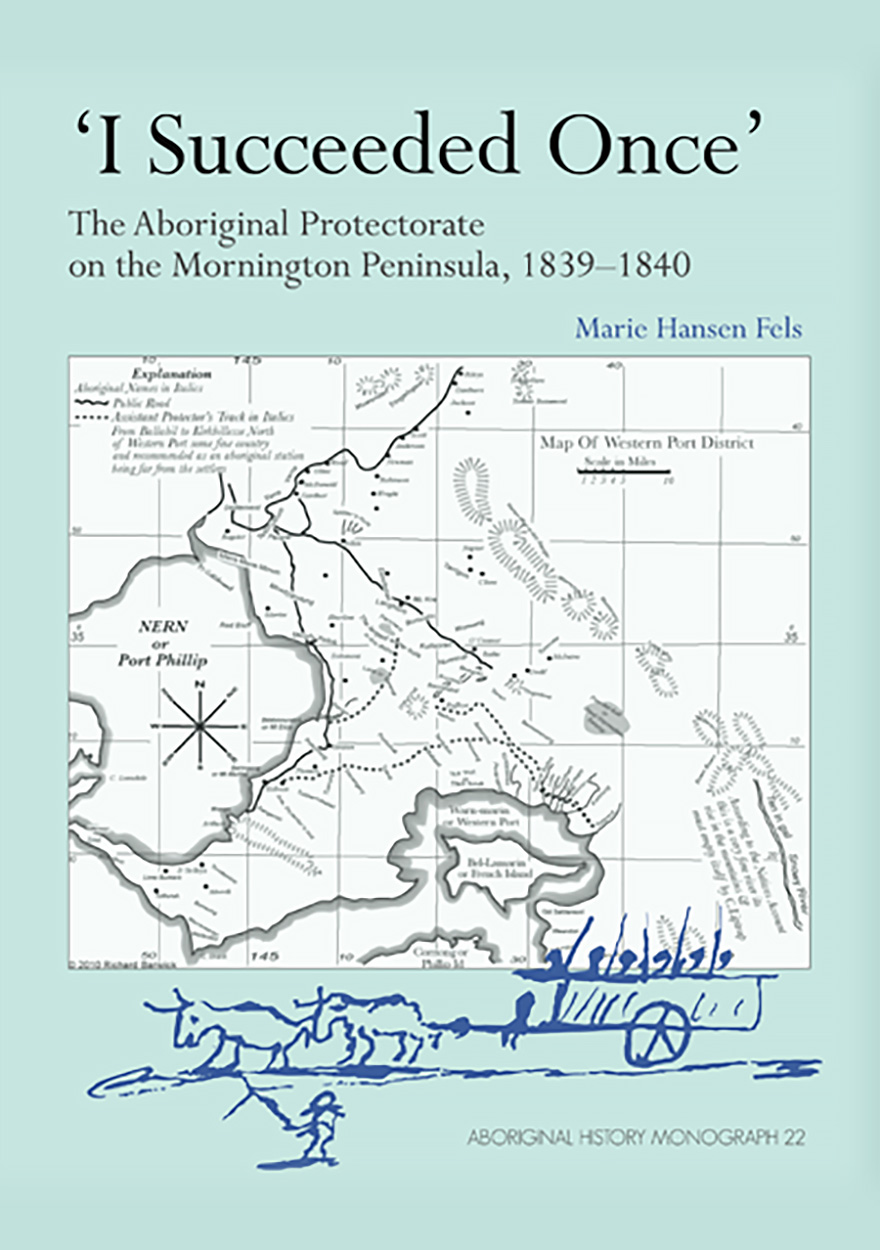Search titles
Displaying results 761 to 770 of 1137.

Multiculturalism and Integration »
A Harmonious Relationship
Edited by: James Jupp, Michael Clyne
Publication date: July 2011
Multiculturalism has been the official policy of all Australian governments (Commonwealth and State) since the 1970s. It has recently been criticised, both in Australia and elsewhere. Integration has been suggested as a better term and policy. Critics suggest it is a reversion to assimilation. However integration has not been rigorously defined and may simply be another form of multiculturalism, which the authors believe to have been vital in sustaining social harmony.

East Asia Forum Quarterly: Volume 3, Number 2, 2011 »
Publication date: July 2011
East Asia Forum Quarterly grew out of East Asia Forum (EAF) online, which has developed a reputation for providing a platform for the best in Asian analysis, research and policy comment on the Asia Pacific region in world affairs. EAFQ aims to provide a further window onto research in the leading research institutes in Asia and to provide expert comment on current developments within the region. The East Asia Forum Quarterly, like East Asia Forum online, is an initiative of the East Asia Forum (EAF) and its host organisation, the East Asian Bureau of Economic Research (EABER) in the Crawford School of Economics and Government in the College of Asia & the Pacific at The Australian National University.
Download for free
Not available for purchase

Humanities Research: Volume XVII. No. 1. 2011 »
Latin America: Building and Rebuilding the Nation
Edited by: Guy Emerson, John Minns
Publication date: July 2011
Humanities Research is an internationally peer-reviewed journal published by the Research School of Humanities at The Australian National University. The Research School of Humanities came into existence in January 2007 and consists of the Humanities Research Centre, Centre for Cross-Cultural Research, National Europe Centre and Australian National Dictionary Centre. Launched in 1997, issues are thematic with guest editors and address important and timely topics across all branches of the humanities.
Download for free
Not available for purchase

China: The Next Twenty Years of Reform and Development (Chinese version) »
中国:未来二十年的改革与发展
Publication date: June 2011
过去30年,中国在经济改革和对外开放方面取得了巨大成就,从而成为世界上举足轻重的一个经济体。不过,在改革与发展的进程中,仍然存在许多没有解决的问题,也会面临诸多新的挑战。本书旨在关注以下问题:中国如何深化要素市场等颇具争议的领域的改革;如何改革汇率体制和医疗卫生体系,同时,这些改革需要有强有力且高效的配套政策措施,中国才可能应对一系列挑战。这些挑战包括:如何应对劳动力无限供给时代的结束;如何在减少全球贸易失衡中担当建设性的角色;如何提高企业的创新能力;如何应归史无前例的移民、城市化和社会不平等问题;以及如何在低碳发展成为唯一路径的条件下,解决能源和金属使用量增长带来的排放问题。
下载前请阅读下载须知
免费下载文件章节
Chinese print version of this book is available from Social Science and Academic Press

Exploring the Legacy of the 1948 Arnhem Land Expedition »
Edited by: Martin Thomas, Margo Neale
Publication date: June 2011
In 1948 a collection of scientists, anthropologists and photographers journeyed to northern Australia for a seven-month tour of research and discovery—now regarded as ‘the last of the big expeditions’. The American–Australian Scientific Expedition to Arnhem Land was front-page news at the time, but 60 years later it is virtually unknown. This lapse into obscurity was due partly to the fraught politics of Australian anthropology and animus towards its leader, the Adelaide-based writer-photographer Charles Mountford. Promoted as a ‘friendly mission’ that would foster good relations between Australia and its most powerful wartime ally, the Expedition was sponsored by National Geographic, the Smithsonian Institution and the Australian Government. An unlikely cocktail of science, diplomacy and popular geography, the Arnhem Land Expedition put the Aboriginal cultures of the vast Arnhem Land reserve on an international stage.

Rising China: Global Challenges and Opportunities »
Edited by: Jane Golley, Ligang Song
Publication date: June 2011
Where the last three decades of the 20th century witnessed a China rising on to the global economic stage, the first three decades of the 21st century are almost certain to bring with them the completion of that rise, not only in economic, but also political and geopolitical terms. China’s integration into the global economy has brought one-fifth of the global population into the world trading system, which has increased global market potential and integration to an unprecedented level. The increased scale and depth of international specialisation propelled by an enlarged world market has offered new opportunities to boost world production, trade and consumption; with the potential for increasing the welfare of all the countries involved.
However, China’s integration into the global economy has forced a worldwide reallocation of economic activities. This has increased various kinds of friction in China’s trading and political relations with others, as well as generating several globally significant externalities. Finding ways to accommodate China’s rise in a way that ensures the future stability and prosperity of the world economy and polity is probably the most important task facing the world community in the first half of the 21st century. The book delves into these issues to reflect upon the wide range of opportunities and challenges that have emerged in the context of a rising China.
Chinese translation

Medical Student Journal of Australia: Volume Three, Issue 1 »
Publication date: June 2011
The Medical Student Journal of Australia provides the medical school of The Australian National University with a platform for medical students to publish their work in a peer-reviewed journal, communicating the results of medical and health research information clearly, accurately and with appropriate discussion of any limitations or potential bias.
Download for free
Not available for purchase

Double Vision »
Asian Accounts of Australia
Edited by: Alison Broinoswki
Publication date: May 2011
Do Australians care about what their Asian neighbours think of them — and does it matter if they don’t? This collection of essays reveals that admiration for Australia is not widespread, particularly among Japanese and Chinese commentators. And how our Asian neighbours perceive Australia is important: perceptions have a powerful effect on the way different societies respond to one another.
As part of the Asian Accounts of Australia project, this volume addresses a much-neglected issue and presents the views of pre-eminent scholars on how Australia is perceived among Chinese and Japanese and what this means for our future. Can Australia make the most of its opportunities to be well regarded and influential in China and Japan or will we be dismissed as a derivative culture, ignorant about our region?

'I Succeeded Once' »
The Aboriginal Protectorate on the Mornington Peninsula, 1839–1840
Authored by: Marie Hansen Fels
Publication date: May 2011
In ‘I Succeeded Once’ – The Aboriginal Protectorate on the Mornington Peninsula, 1839-1840, Marie Fels makes the work of William Thomas accessible to anthropologists, archaeologists, historians and the descendants of the Aboriginal people he wrote about. More importantly, people who live, work, study, holiday or just have a general interest in the area from Melbourne to Point Nepean can learn about the original inhabitants who walked the land before it was cleared for agriculture and urban development. Of course, development of the Mornington Peninsula is ongoing and this book will help those involved in development or the management of Aboriginal cultural heritage to identify, document and protect Aboriginal places that may not be identifiable through archaeological investigations alone. Marie Fels supplements Thomas’s writings with other contemporary accounts and her exhaustive historical research sheds new light on critical events and the significant places of the Boon Wurrung people. Of particular importance is the critical review of information about the kidnapping of Boon Wurrung people from the Mornington Peninsula.
Winner of the Best Community Research, Register, Records at the Community History Awards by the Royal Historical Society of Victoria and the Public Record Office of Victoria in 2011.
For more information on Aboriginal History Inc. please visit aboriginalhistory.org.au.

Man Bac »
The Excavation of a Neolithic Site in Northern Vietnam
Edited by: Marc F. Oxenham, Hirofumi Matsumura, Nguyen Kim Dung
Publication date: May 2011
The site of Man Bac in the Red River Delta of Vietnam, one of the most meticulously excavated and carefully analysed of Southeast Asian archaeological sites in the past few years, is emerging as a key site in the region. This book carefully analyses the human and animal remains and puts them into context. The authors describe in detail the health status, the unusual demographic profile and the interestingly divergent affinities of the cemetery population, and discuss their meaning, particularly in association with evidence for the use of marine and terrestrial animal resources; they argue convincingly that the site documents a time when the face of the region’s population was undergoing a fundamental shift, associated with a changing economic subsistence base. Physical anthropologists and archaeologists have argued for years over the timeline, the manner and the very nature of Southeast Asian population history, and this book is essential reading in this debate. Two supporting appendices describe the individual remains in detail.



